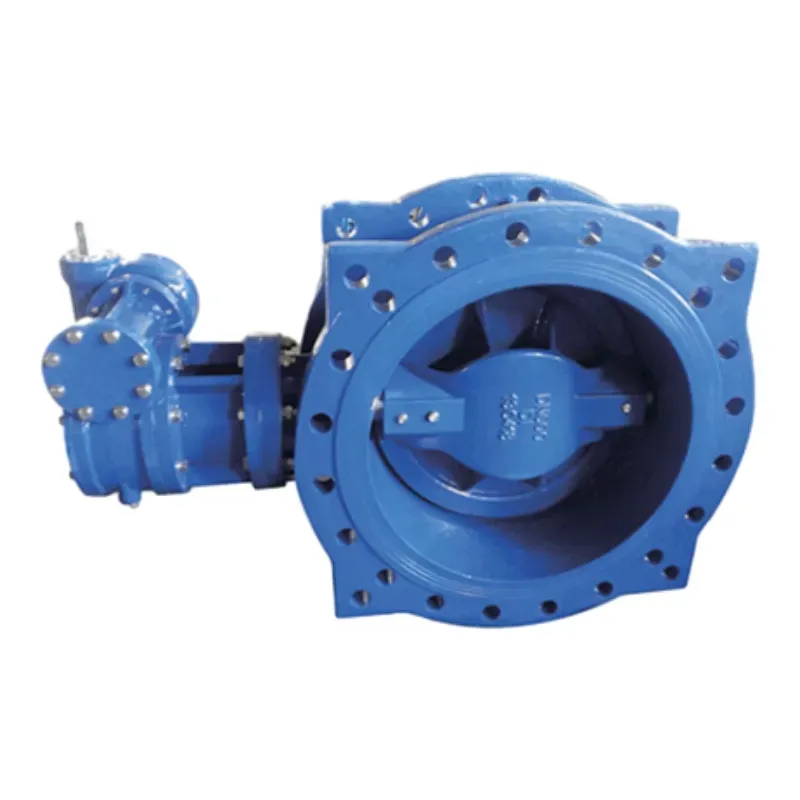Dec . 11, 2024 02:25 Back to list
Understanding the Function and Importance of Air Valves in Fluid Systems
Understanding DI Air Valves A Comprehensive Overview
Air valves play a crucial role in various hydraulic and pneumatic systems, with the DI air valve (Ductile Iron Air Valve) being one of the most significant types used across industries. DI air valves are preferred for their durability, reliability, and excellent performance in controlling air flow within pipelines. In this article, we delve into the functionality, applications, benefits, and maintenance of DI air valves, along with their importance in ensuring efficient system operations.
What is a DI Air Valve?
A DI air valve generally consists of a ductile iron body, which provides high tensile strength and corrosion resistance. This makes it exceptionally suited for applications in water and wastewater systems, as well as various industrial processes. DI air valves serve primarily to release trapped air within pipelines, ensuring the efficient operation of fluid transport systems. They help maintain system pressure, prevent water hammer, and minimize the risk of system failure due to air accumulation.
Functions of DI Air Valves
The primary functions of DI air valves include
1. Air Release They are designed to automatically release accumulated air from the pipeline, preventing air lock situations that can impede fluid flow. 2. Air Intake In specific conditions, DI air valves can also allow air to enter the system to balance pressure. This is essential during pipeline drainage or maintenance.
3. Preventing Backflow Many designs include features that prevent water from flowing back into the valve, which is crucial for maintaining system integrity.
Applications
DI air valves have a wide range of applications, including
1. Water Supply Systems Used extensively in municipal water supply chains to ensure optimal flow and pressure.
2. Wastewater Management In sewer systems and treatment plants, these valves help manage pressures for safe operations.
3. Irrigation Systems They contribute to efficient water distribution in agricultural irrigation, eliminating wasted resources.
4. Industrial Processes In various manufacturing and processing plants, DI air valves help manage fluid systems effectively.
di air valve

Benefits of DI Air Valves
1. Durability Being made of ductile iron, these valves offer enhanced resistance to corrosion and wear, leading to a longer lifespan.
2. Reliability Their design ensures consistent performance, which is critical in maintaining operational efficiency in fluid systems.
3. Cost-Effective While the initial investment may be higher compared to plastic options, the long-term savings from reduced maintenance and replacement costs often outweigh initial expenses.
4. Versatility They can be used in a variety of environmental conditions and are suitable for both small and large-scale installations.
Maintenance of DI Air Valves
Maintaining DI air valves is essential for ensuring their optimal performance and longevity. Here are some key maintenance tips
1. Regular Inspections Frequent checks for leaks, damages, or signs of corrosion can help identify problems before they escalate.
2. Cleaning Keeping the valve and its mechanisms clean from debris and buildup can prevent malfunctions and maintain efficient operations.
3. Lubrication Some components may require regular lubrication to ensure smooth operation, preventing wear and tear.
4. Testing Functionality Regularly testing the valve’s ability to release or intake air under operational conditions is crucial for assurance that the system is functioning as designed.
5. Professional Servicing Engaging professionals for annual servicing can help uncover issues not visible during routine inspections, thereby extending the life of the valves.
Conclusion
DI air valves are an indispensable component in fluid management systems. Their robust construction, combined with essential air management functions, makes them ideal for a broad array of applications in water supply, wastewater treatment, and industrial processes. Proper selection, installation, and maintenance of DI air valves can lead to enhanced operational efficiency and reduced the risk of costly downtime due to system failures. By understanding the importance of these valves, operators can ensure that their fluid systems operate smoothly and effectively, contributing to overall system resilience and reliability.
Share
-
Advanced Technology in Wire and Cable FactoryNewsAug.19,2025
-
Applications of Ball Check Valve in Water Treatment PlantsNewsAug.19,2025
-
How Osy Gate Valve Ensures Leak - Tight SealingNewsAug.19,2025
-
Selection Criteria for Wafer Type Butterfly ValveNewsAug.19,2025
-
Threaded Ball Valve Pressure RatingsNewsAug.19,2025
-
Y Strainer PN16 Cost - Effectiveness AnalysisNewsAug.19,2025


